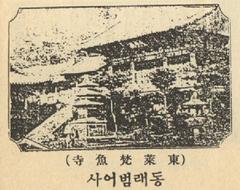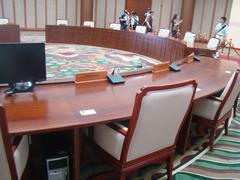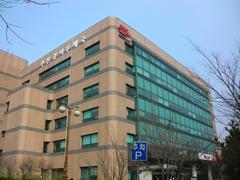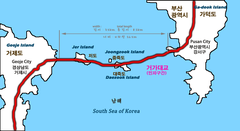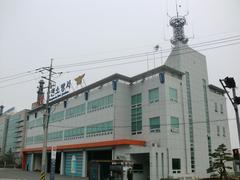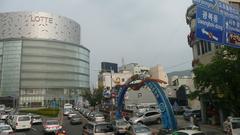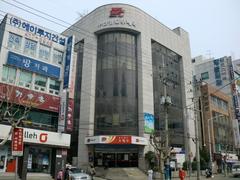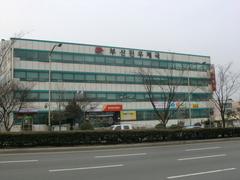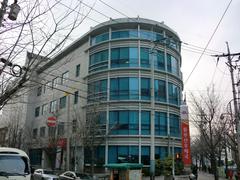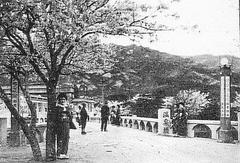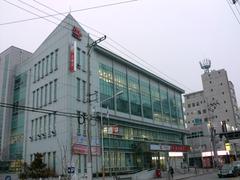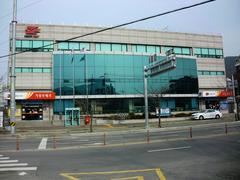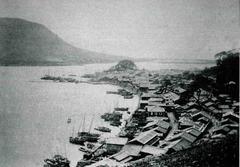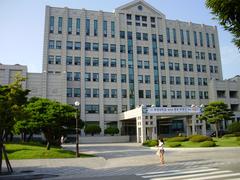Millak Station Visiting Hours, Tickets, and Busan Historical Sites Guide
Date: 04/07/2025
Introduction
Millak Station, situated in Busan’s lively Suyeong District, is a vital gateway linking visitors to the region’s celebrated coastal scenery, historical sites, and contemporary cultural experiences. Conveniently located on Busan Metro Line 2, it provides direct access to iconic attractions such as Gwangalli Beach, Millak Waterfront Park, and the bustling Millak The Market. As a hub reflecting Busan’s evolution from a traditional fishing community to a vibrant metropolis, Millak Station is designed with accessibility, multilingual support, and modern amenities, ensuring a seamless and inclusive journey for both locals and international travelers (Korea Travel Planning; Evendo; Busan Metropolitan City; Namu Wiki).
This guide delivers essential information on Millak Station’s operating hours, ticketing, accessibility, and nearby attractions, alongside practical travel tips and insights into its cultural significance. Whether you’re eager to explore Busan’s historical tapestry or immerse yourself in its vibrant coastal lifestyle, Millak Station serves as your ideal starting point (Wikipedia).
Contents
- Introduction to Millak Station
- Origins and Urban Development
- Key Features and Accessibility
- Nearby Attractions and Cultural Highlights
- Historical and Socioeconomic Context
- Practical Visitor Information
- Station Layout and Facilities
- Connectivity and Transfers
- Travel Tips and FAQs
- Environmental and Community Initiatives
- Summary Table of Key Attractions
- References
Discover Millak Station: Your Gateway to Busan’s History and Culture
Origins and Urban Development
Nestled in Millak-dong, Suyeong-gu, Millak Station is part of a neighborhood that has transitioned from a modest fishing hamlet to a dynamic urban area. Busan’s rapid growth, driven by industrialization and its strategic port status, is mirrored in the development of Millak Station and its surroundings. The station’s inception was integral to expanding reliable public transit and supporting the city’s modernization (Korea Travel Planning; Busan Metropolitan City).
Key Features and Accessibility
- Operating Hours: 5:30 AM to midnight daily.
- Ticket Prices: Fares start at 1,300 KRW for single journeys; discounts available for children, seniors, and frequent riders.
- Multilingual Signage: Directions provided in Korean, English, Japanese, and Chinese.
- Accessibility: Equipped with elevators, ramps, tactile paving, and accessible restrooms, ensuring comfort for all travelers (Busan Metropolitan City; Namu Wiki).
- Facilities: Restrooms, waiting areas, security features, and customer service desks.
Exploring Nearby Attractions and Cultural Highlights
- Gwangalli Beach: Famous for its fine sand, lively nightlife, and panoramic views of Gwangan Bridge’s nightly LED displays (KoreaToDo).
- Millak Waterfront Park: Popular for oceanfront leisure, picnic steps, and community gatherings (Trippose).
- Millak Raw Fish Town: A multi-story seafood market offering fresh local catches and vibrant dining experiences (Peek).
- Millak The Market: A contemporary center for food, crafts, and cultural events, particularly popular among younger generations (Evendo; Haps Korea).
- Festivals & Events: The area hosts annual spectacles like the Busan Sea Festival, Gwangalli M Drone Light Show, and pop-up exhibitions, fostering a vibrant community spirit (BACO-25 Circular).
Historical and Socioeconomic Context
Millak’s transformation exemplifies Busan’s successful blending of maritime traditions with contemporary urban development. The area now attracts entrepreneurs, creatives, and tourists, contributing to Busan’s status as a forward-thinking, culturally rich metropolis (Busan Metropolitan City).
Visitor Information and Station Guide
Location and Entrances
- Address: Suyeong-dong, Suyeong District, Busan, South Korea (Wikipedia).
- Main Exits: Exit 1 is the primary gateway to waterfront attractions and bus connections (Trippose).
- Nearby Bus Routes: Bus 210 and others connect to Haeundae, Centum City, and additional city districts.
Ticketing
- Base Fare: Approximately 1,300 KRW.
- How to Buy: Use automated machines with English instructions or recharge T-money/Hanaro cards.
- Customer Service: Staffed desks are available during peak hours.
Station Layout
- Platforms: Two side platforms with safety screen doors.
- Facilities: Elevators, escalators, seating, clean restrooms, and climate-controlled waiting areas.
Security and Support
- CCTV Surveillance: Ensures safety throughout the station.
- Travel Hotline: The 1330 Korea Travel Hotline (+82-51-1330) provides multilingual support (Visit Korea).
Connectivity and Transfers
- Buses: Direct access to city buses at main exits.
- Taxi Stand: Located at the primary entrance.
- Bicycle Parking: Available for eco-friendly commuters.
Practical Travel Tips
- Peak Hours: Avoid morning and evening rush for a more relaxed experience.
- Luggage: No storage at the station—plan accordingly.
- Accessibility: All facilities support mobility needs, but allow extra time when crowded.
- Navigation: Use KakaoMap or Naver Map for real-time directions.
- Photography: Sunset and night offer the best photo opportunities at waterfront parks and the beach.
Environmental and Community Initiatives
Millak Station is committed to sustainability, featuring energy-efficient lighting, recycling programs, and support for community events, reflecting Busan’s eco-friendly urban vision (Visit Korea).
Top Attractions Near Millak Station (Summary Table)
| Attraction | Distance from Station | Highlights | Best Time to Visit |
|---|---|---|---|
| Gwangalli Beach | 10–15 min walk | Night views, lively events, cafes | Evening, Summer |
| Gwangan Bridge | Visible from area | Nightly LED light shows | Night |
| Millak Waterfront Park | 5–10 min walk | Picnic seating, sea views, community gatherings | Weekends, Evenings |
| Millak Raw Fish Town | 10 min walk | Seafood dining, sashimi, sea views | Lunch/Dinner |
| Gwangalli M Drone Show | 15 min walk | Weekly drone light show | Saturday evenings |
FAQs
Q: What are Millak Station’s operating hours?
A: 5:30 AM to midnight daily.
Q: How much are tickets?
A: Single-ride tickets start at about 1,300 KRW; prices vary by distance.
Q: Is the station accessible?
A: Yes, with elevators, tactile paving, and accessible restrooms.
Q: Are there entrance fees for nearby attractions?
A: Most outdoor attractions and parks are free.
Q: What’s the best way to navigate Busan’s transport network?
A: Use rechargeable transportation cards and navigation apps like KakaoMap or Naver Map.
Conclusion and Recommendations
Millak Station is central to exploring Busan’s historical sites, contemporary culture, and scenic coastline. With direct metro and bus links, accessible infrastructure, and proximity to major attractions and festivals, it’s an essential starting point for any Busan adventure. Plan your trip around the station’s operating hours, use transit cards for convenience, and explore the area’s diverse offerings. For real-time updates, event information, and travel tips, download the Audiala app and consult local tourism resources.
References and External Links
- Korea Travel Planning
- Busan Metropolitan City
- Wikipedia
- Trippose
- Namu Wiki
- Evendo
- Haps Korea
- KoreaToDo
- BACO-25 Circular
- Visit Korea
